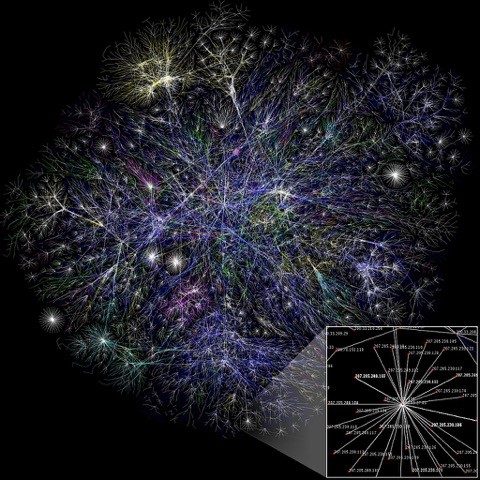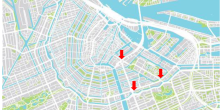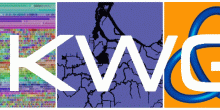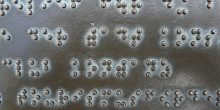In recent years, the University of Amsterdam has been offering online courses (webklassen) aimed at high school students. These courses introduce some of the more exciting mathematical topics that are taught at university. This November, a brand-new online course, sponsored and developed by NETWORKS, will be launched. If you are a high-school teacher or student, register here !
The course is titled Complex Networks: small worlds with skewed distributions. It introduces some of the key concepts and models used by scientists to describe networked structures encountered in nature, technology and human societies. Examples of such structures are plentiful: the human brain can be viewed as a network made up of billions of connected neurons; the Internet is a world-wide network of computers (see image below); and societies around the world consist of millions of people connected by relationships like friendships and family ties. The term complex network is used to describe large networked systems that are neither completely random nor completely structured.

Mathematics, and in particular graph theory, is used as the common language to describe and analyse complex networks. Throughout the Complex Networks course, mathematical concepts and models will be introduced, enabling a systematic analysis of real-world networks and explaining interesting network phenomena.
Students of the course will learn about a range of characteristics unique to complex networks that they unknowingly encounter every day. For example, the course will explain under which conditions a disease may become an epidemic and how this relates to social media content `going viral’, see here for a recent article about this. Students will gain insight into the `small-world effect’ that describes the unexpected connections between individuals that are seemingly `far apart’ in real-life social networks. Finally, students will learn how non-uniformity in communication networks affect their robustness and attack-tolerance.
This course has a more applied flavour than the previously offered `webklassen’ and shows how mathematical techniques can help describe, understand and predict real-world phenomena. Individual students as well as whole classrooms are invited to join the course. Sign-up here .





